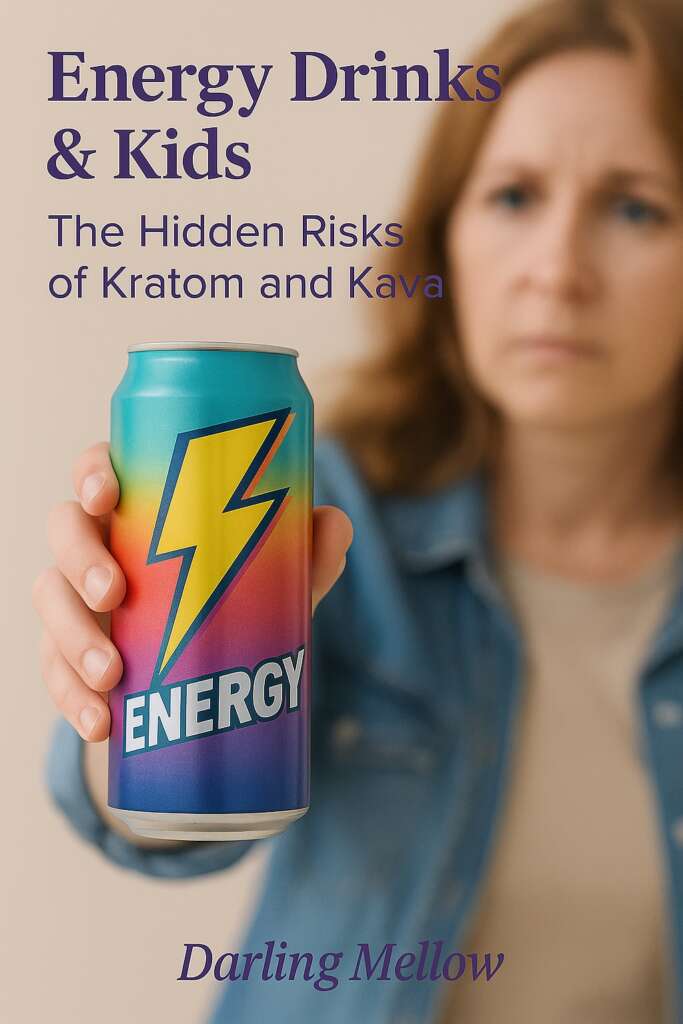What Are Kratom and Kava?
- Kratom: A plant from Southeast Asia, sometimes used for pain relief. It can act as both a stimulant and sedative, and has been linked to dependence and withdrawal.
- Kava: A root from the Pacific Islands traditionally used for relaxation. It can cause drowsiness and, with long-term use, has been linked to liver problems.
Why These Drinks Are Dangerous for Kids
- Neither kratom nor kava is safe for children or teens — their developing bodies are more vulnerable to the side effects.
- Energy drinks can cause heart palpitations, sleep problems, anxiety, and dehydration. Adding kratom or kava increases these risks.
- Many drinks aren’t clearly labelled, so parents may not even realise what their child is consuming.
Signs Your Child Might Be Drinking Them
- Increased anxiety, mood swings, or irritability
- Unusual drowsiness or trouble staying awake
- Rapid heartbeat or complaints of chest pain
- Hidden cans or bottles with unfamiliar brand names
What Parents Should Do If They Suspect Use
- Stay Calm: Start a conversation without judgment — teens are more likely to open up if they don’t feel attacked.
- Ask Direct Questions: “I noticed this drink in your bag — can you tell me about it?”
- Check Labels Together: Show them what ingredients like kratom or kava mean and why they’re unsafe.
- Seek Medical Advice: If your child shows worrying symptoms, contact your GP promptly.
Safe Alternatives for Energy and Focus
- Water and Electrolytes: Hydration helps more than most realise
- Fruit Smoothies: Natural sugar + vitamins for gentle energy
- Herbal Teas: Chamomile or peppermint for calm focus without caffeine
- Balanced Snacks: Nuts, yogurt, or oats for steady energy release
The Gentle Takeaway
Energy drinks marketed as “natural” are not safe for children. Kratom and kava may sound harmless, but the risks are very real. Open conversations, safe alternatives, and steady guidance can help teens avoid the hidden dangers behind the glossy labels.
Want More Safety Guides?
Join the Darling Mellow newsletter for honest advice, gentle parenting strategies, and health updates every UK parent should know.


